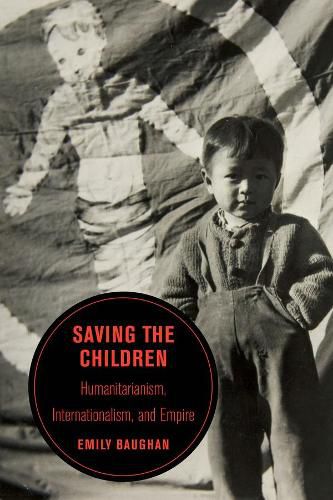Readings Newsletter
Become a Readings Member to make your shopping experience even easier.
Sign in or sign up for free!
You’re not far away from qualifying for FREE standard shipping within Australia
You’ve qualified for FREE standard shipping within Australia
The cart is loading…






Saving the Children explores the intersection of liberal internationalism and imperialism through the history of the humanitarian organization Save the Children, from its formation during the First World War through the era of decolonization. Whereas Save the Children claimed that it was saving children to save the world, the vision of the world it sought to save was a strictly delimited one, characterized by international capitalism and colonial rule. Emily Baughan’s groundbreaking analysis, across fifty years and eighteen countries, shows that Britain’s desire to create an international order favorable to its imperial rule shaped international humanitarianism. In revealing that modern humanitarianism and its conception of childhood are products of the early twentieth-century imperial economy, Saving the Children argues that the contemporary aid sector must reckon with its past if it is to forge a new future.
$9.00 standard shipping within Australia
FREE standard shipping within Australia for orders over $100.00
Express & International shipping calculated at checkout
Stock availability can be subject to change without notice. We recommend calling the shop or contacting our online team to check availability of low stock items. Please see our Shopping Online page for more details.
Saving the Children explores the intersection of liberal internationalism and imperialism through the history of the humanitarian organization Save the Children, from its formation during the First World War through the era of decolonization. Whereas Save the Children claimed that it was saving children to save the world, the vision of the world it sought to save was a strictly delimited one, characterized by international capitalism and colonial rule. Emily Baughan’s groundbreaking analysis, across fifty years and eighteen countries, shows that Britain’s desire to create an international order favorable to its imperial rule shaped international humanitarianism. In revealing that modern humanitarianism and its conception of childhood are products of the early twentieth-century imperial economy, Saving the Children argues that the contemporary aid sector must reckon with its past if it is to forge a new future.